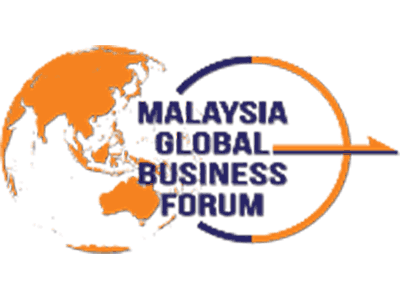HONG KONG SAR –
Media OutReach – 26 July 2022 – The pandemic has amplified the talent crisis of Hong Kong, according to the government Census and Statistics Department, the total employed persons have decreased by around 244,500 from 3,855,000 in May 2019 – July 2019 to 3,610,500 in January 2022 – March 2022. In January 2022, the American Chamber of Commerce (AmCham) in Hong Kong conducted a survey and found in its “2022 Business Sentiment Survey Report” that more than 40% of employees from American companies in Hong Kong are more likely to leave the city while over 25% of surveyed American companies say they are more likely to leave Hong Kong.
And in January 2022, the Japan External Trade Organization (JETRO) also indicated that “37% of 251 Japanese companies in Hong Kong noted it was more difficult to hire locally than it had been a year earlier”. On March 30 of 2022, Hong Kong Chief Executive Carrie Lam also admitted that “It’s an unarguable fact that we have a brain drain and some senior managements of some corporates have left Hong Kong”.
The CEO of Lan Kwai Fong Group, Allen Zeman, has made an open-up suggestion about the current talent situation. He thought that “we have to open up Hong Kong. It is great to worry about health, which is especially important. But on the other hand, we also need an economic life as we are an international financial center.”
Oxford Metrica also conducted a survey in 2021 for the Financial Services Development Council of Hong Kong, and the council pointed out in its report “2021: Hong Kong – the Leading Global Financial Centre” that “The challenge will be to find ways to ensure that Hong Kong continues to be a popular posting for expatriates while at the same time attracting the best and brightest young graduates locally to join the financial services industry”. Thus, there is a need for talent strategies and specific plans to maintain and strengthen Hong Kong’s advantages of talent competitiveness.
In the 4
th quarter of 2021, the distribution of composite employment by sector in Hong Kong was 2% in manufacturing with 89,100 workers and 88.4% in service industries which cover several key industries including financial and insurance services with 286,500 persons accounting for 7.8% share in total employment, trading and logistics with 877,600 employees accounting for 23.8% share in total employment and professional and business services with 401,800 persons accounting for 10.9% share in total employment as reported by HKSAR census and statistics department.
Given the current situation of digital needs, departure of ex-pats, immigration of Hong Kong residents, the aging population as well as low birth rate. According to the statistics released by the Census and Statistics Department of Hong Kong, the percentage of residents aged sixty-five or above is projected to increase from 703,700 in 2021 to around 945,723 at the average annual rate of 5.05% by 2027.
It is projected that there would be a witness of talent shortage and a worsening gap between the labor demand and supply of approximately 170,000 positions after 5 years in Hong Kong which is in 2027 due to the gap between the retiring population and newly added population. The industry with the biggest vacancy would be professional and business services, it is estimated that this field will lack 32,000 people in 5 years. The finance industry will lack 16,000 people in 5 years. And the Information and Communication Techniques field is about to see a gap of 12,000 vacant occupations in 5 years.
To realize the talent strategy, we could establish different talent development game plans regarding the period of time that talents may stay in Hong Kong.
Sources of long-term talent include largely both local and non-local higher education graduates who study in Hong Kong, professionals, mainland talents, and highly skilled or talented persons.
The main source of short-term talent would be the expatriates.
1. The First Category Long-term Talent Source – (Local & Non-local Fresh Graduates in Hong Kong) The first one is fresh graduates of Hong Kong which include both local and non-local residents. There are nearly 30,000 graduates every year from the programs funded by the University Grants Committee (UGC) in Hong Kong, and that number was 28,861 in 2021 as reported by UGC in which approximately 13% of whom were mainland Chinese students. They also account for around 67.1% of the total non-local students.
Besides, there are around 49,000 postgraduate students in Hong Kong in both government-funded and self-financed postgraduate programs regarding the figures published by 8 UGC-funded universities while the vast majority of them come from mainland China. Of all those students in higher education, the number of students studying business courses (including business management and finance) and computer science and information technology is about 13,000 and 5,000, respectively.
On the other hand, the United Kingdom (UK) has launched the “BNO” (British National Overseas) scheme since the beginning of 2021 which allows eligible Hong Kong residents and their families to live, study or work in the UK. In May 2022, the UK initiated another visa scheme called as “HPI” (High Potential Individual) visa which aims at attracting eligible students who graduated in the past 5 years worldwide, any graduate of universities that have ranked top 50 in at least 2 comprehensive references for university rankings out of the Times World University Rankings, QS World University Rankings and Academic Ranking of World Universities could apply for the “HPI” visa. A few universities in Hong Kong are on the list. The impact of the UK’s “BNO” scheme and “HPI” (High Potential Individual) work visa on Hong Kong’s “brain drain” is unknown.
2. The Second Long-term Talent Source – (Professionals, Mainland Talents, and Technology Talents Coming to Hong Kong through Various Admission Schemes) Hong Kong has also launched various kinds of talent admission schemes trying to attain valuable human capital. Thus, the second long-term talent source of Hong Kong includes professionals under the General Employment Policy (GEP), mainland talents from the Admission Scheme for Mainland Talents and Professionals (ASMTP), and talents with relevant technical backgrounds through the Technology Talent Admission Scheme (TechTAS). According to the Hong Kong Immigration Department, the number of talents coming to Hong Kong via the aforementioned types of immigration schemes was about 32,000 per year before the pandemic.
3. Short-term Talent Source – (Expatriates) The other pool of talent is expatriates. Hong Kong as a global financial center holds a high percentage of expatriates in its population, there were 41,592 of them in 2018 referring to the statistic provided by the Hong Kong Council of Social Services.
Therefore, it is imperative to strengthen the attractiveness of Hong Kong to those talents, and the existing methods and thinking modes are not enough to address the growing talent crisis. For local recent university graduates, we could: i. Create and expand job opportunities in Hong Kong and the Greater Bay Area (GBA).
ii. Continue and expand the job assistance scheme to GBA.
ii. Support them with other approaches such as housing allowances/subsidies, career pathway development, tax incentive, and so forth.
For non-local recent university graduates: i. Government may consider increasing the scholarship opportunities and relaxing the restrictions on working for non-local students to attract them to study in Hong Kong.
ii. Continue the ease of application for the Immigration Arrangements for Non-local Graduates (IANG) visa and consider the extension of the validity period of the IANG visa (the number of IANG visa applicants is around 9,000 every year) for the sake of attracting non-local students to stay and work in Hong Kong after graduating.
iii. A more controversial but attractive approach is for policymakers to consider revising the immigration policies and shortening the residency requirement from 7 years to 4 years in becoming permanent residents of HKSAR.
iv. Initiate a tuition grant scheme similar to Singapore that waives a certain amount of tuition fees in exchange for a fixed duration of work in Hong Kong.
v. Collaborate with different enterprises in Hong Kong and provide internship or work opportunities for non-local fresh graduates.
For Professionals, Mainland Talents, and Technology Talents: i. In the short term, easing the travel and quarantine restrictions could mitigate the burdens on the flow of talents.
ii. Increase the input on R&D (research and development) and other infrastructure and create more relevant occupations to attract as well as retain talents with a technology background. Currently, Hong Kong’s R&D investment only accounts for less than 1% of its GDP as reported by the Census and Statistics Department in 2021 while that proportion of global districts has almost achieved 5% early in 2018 according to the data released by The Global Economy, and that average rate of European Union was 2.32% in 2020 as presented by European Commission.
iii. Financial support or tax incentives for those who come to Hong Kong to start businesses in key industries.
iv. Increase government funding to encourage the knowledge transfer of academic research.
v. Policymakers could consider assisting these talents with job searching in both Hong Kong and the GBA.
vi, Other than the IANG scheme, policymakers could consider the continuation and expansion of the General Employment Policy (GEP) and Technology Talent Admission Scheme (TechTAS).
For Expatriates: i. Policymakers could design and implement tax holidays on income for eligible expatriates who work in key industries or technologies.
ii. Spouse career development support such as financing part of the tuition to attend recognized programs.
iii. Strengthen education support for expatriates’ children, government could reconsider continuing to subsidize the English Schools Foundation (ESF) to ensure the quality international education for expats’ children.
In summary, Hong Kong’s existing talent plans are not adequate to help it get a breakthrough in building the talent pipeline. Policymakers should contemplate more innovative and proactive initiatives to attract and retain both long- and short-term talents for Hong Kong.
Hashtag: #LingnanUniversity

Services
Stakeholder mapping, analysis, engagement and communication needs to be detailed to avoid business losses or even worse, a crisis. How can you do this effectively to prevent failure? ...
Data-driven business decisions have never been as crucial, especially in this era. MGBF leverages off, technology, experience and market presence to aid businesses in making accurate decisions. ...
MGBF provides comprehensive strategic advice and results-focused solutions to solve clients' problems in business-government relations so they can focus on their core business. ...
A critical business challenge is meeting the right decision-makers and potential buyers through the best channel and platform. How will you improve your business competency? ...
Upcoming Events
In this episode of 'A Working Lunch with Nordin', MGBF's Nordin Abdullah and regional commentator Eddin Khoo will discuss the biggest threats and opportunities for businesses as we look to manage change in the South China Sea.
This MGBF Roundtable will feature thought leaders form Japan, Australia, Singapore and Malaysia dealing with the critical issues of manipulation of public listed companies and government and their financial impacts.
A series of networking sessions with various business associations and trade organisations exploring high-value opportunities for business leaders and entrepreneurs looking to build the relationships that matter.
This integrated event will include a forum, dedicated business matching, site visits, a gala dinner and a round of golf. Aptly themed, the focus will be on regional food security issues and trends in the context of the supply chain, agriculture technology and trade regulations and policies.
MGBF In The News
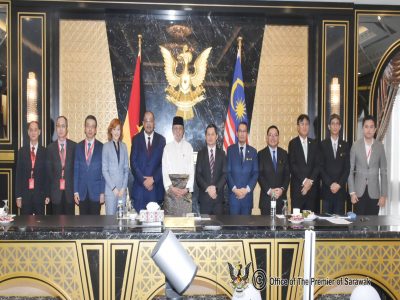
Planet QEOS and China Machinery Engineering Corporation (CMEC) are interested in investing RM10 billion to co-develop advanced Megawatt peak (MWp) agrovoltaic in Baram, to further boost Sarawak’s green energy initiative and food security. Sarawak Premier Datuk Patinggi Tan Sri Abang Johari Tun Openg was briefed on Friday by both the […]
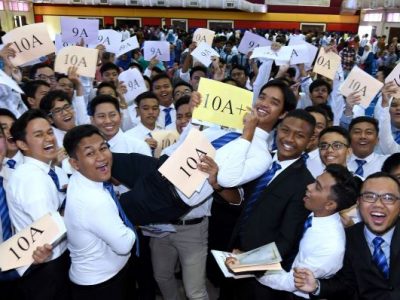
Last week SPM results came out, 373,974 aspirants who have been waiting patiently over the last few months would now know their fate. Some 10,109 have received all A’s, the golden standard of academic success and the ticket to those looking to study the “more advanced” subjects in university. Proudly, […]

The classic knee-jerk reaction is to say, fire the coach, change the leadership of associations, and reduce the funding till they start performing better. This kind of negative reinforcement may work for kindergarten children, but we are dealing with high-performance adults – individuals much further along in their psychological and […]
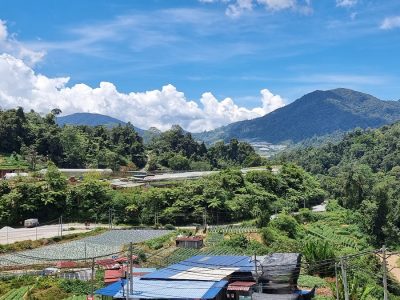
Since its earliest tea plantations in 1929, Cameron Highlands has grown to become a key player in the agricultural landscape of Malaysia, producing 40 per cent of all vegetables grown. Despite Malaysia shifting its economic focus away from agriculture, the industry remains imperative for food security and the livelihoods of […]

Although at first glance the travel industry and the agricultural sector appear to have nothing in common, they actually share more than meets the eye. The economic benefits of tourism to the agricultural sector can be multiplied several times over. “Tourism brings the end consumers closer to the source, which […]
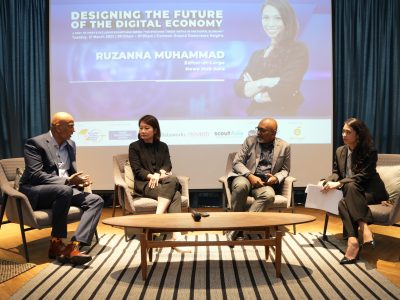
The Malaysia Global Business Forum (MGBF) recently held a high-level roundtable themed ‘Designing the Future of the Digital Economy’, attended by industry leaders and business associations. The guest of honour was Yang Berhormat Syerleena Abdul Rashid, the Member of Parliament (MP) for Bukit Bendera in Penang. The MP’s Special Session […]

The Malaysia Global Business Forum (MGBF) will be hosting a roundtable on ‘Designing the Future of the Digital Economy’ on 23 February 2023. It is the culmination of the first three MGBF Exclusive Roundtable Series titled ‘The Evolving Threat Matrix in the Digital Economy’ held throughout 2022. According to the […]
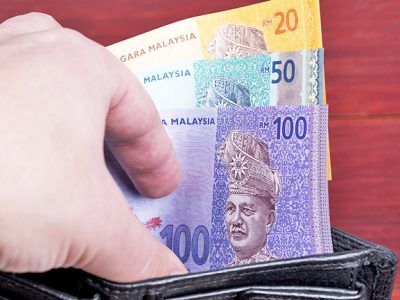
The Founding Chairman of the Malaysia Global Business Forum (MGBF), Nordin Abdullah, today spoke on Bernama TV’s leading English talk show, The Brief, hosted by Jessy Chahal, on the topic of a stable political reality and what that means for the Malaysian economy. Nordin said, “The first thing that it […]

More than 1,100 years ago, Muhammad ibn Musa al-Khwarizmi was developing the mathematical formulas that we know today as algorithms which now have become so intertwined with the business fortunes of global media giants and the very fabric of geopolitics. A series of recent high level international reports have revealed […]
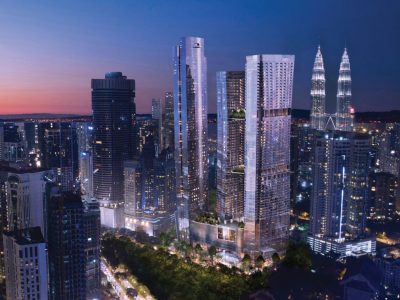
KSK Land has been recognised by the Malaysia Global Business Forum (MGBF) for its role in attracting high net-worth individuals to Malaysia post-pandemic. The first challenge in investor attraction is “selling” the country. In the context of Asia, Malaysia is competing with some very established investment destinations. The second […]

Malaysia, in particular Kuala Lumpur, continues to position itself as a regional centre to do business, educate a family and enjoy a global lifestyle. One company, KSK Land, has taken the lead in positioning itself and the city of Kuala Lumpur as a property investment destination for the global citizen […]
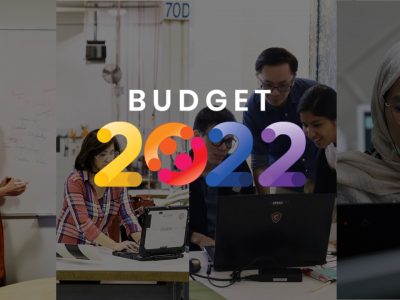
The upcoming budget represents an opportunity to build resilience in the critical sectors that will form the backbone of the country’s future-facing economic ambitions. This however needs to be achieved in the context of managing the community sectors most impacted by COVID-19 over the past two years. The Keluarga Malaysia (Malaysian Family) […]

Malaysia Global Business Forum (MGBF) has moved to support the creative economy as the overall economy moves into a recovery phase following the COVID19 pandemic. As a step in the direction of normalcy, the MGBF has agreed to host the art exhibition “I Know You’re Somewhere So Far” by one […]
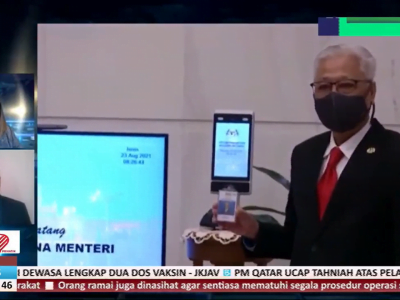
Congratulations to Datuk Seri Ismail Sabri Yaakob for taking up the mantle of the ninth prime minister of Malaysia. There is nothing normal about the situation; it could not have been scripted but it has kept the spectrum of media, mainstream and social, gripped. The first order of business for […]

In a stirring speech to the nation, President Joseph R. Biden, Jr. stamped his brand of leadership on the presidency, in his first act as the 46th president of the United State of America, it signaled several shifts. Perhaps the weather was foreboding with snow falling before the ceremony that […]

KUALA LUMPUR, 6 July 2022 – As the global economy continues to deal with unprecedented levels of disruption caused by the pandemic and the conflict between Russia and Ukraine, the convergence of energy security and food security issues has become a front-of-mind issue faced by policy makers and consumers alike. […]

KUALA LUMPUR, 23 June 2022 — Malaysia Global Business Forum (MGBF) ties up with scoutAsia to ensure that businesses are equipped with deeper regional insights. The past two years has seen a massive shift in the way businesses are conducted with digitisation, digitalisation and automation continuously being adopted to improve […]
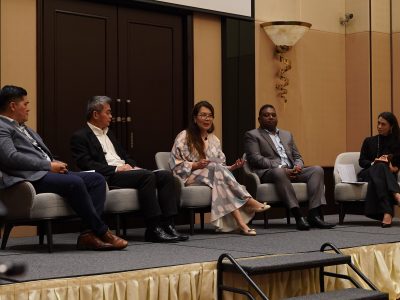
KUALA LUMPUR, 25 May 2022 – The Malaysia Global Business Forum (MGBF)’s exclusive roundtable on ‘Security Concerns in Critical Value Chains’ was held in a hybrid setting yesterday at the Eastin Hotel Kuala Lumpur. The guest of honour was Yang Berbahagia Tan Sri Dato’ Seri Rafidah Aziz, former minister of […]
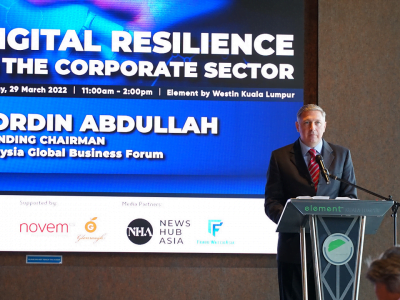
We live in the age of crisis. At the heart of any crisis is the threat of rapid change. Change too deep or too wide that the current coping mechanisms for an individual, corporation or government are unable to remain resilient. An unwelcome paradigm shift, like the proverbial spider, that […]
































